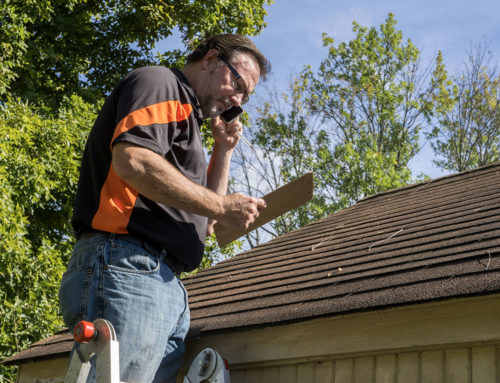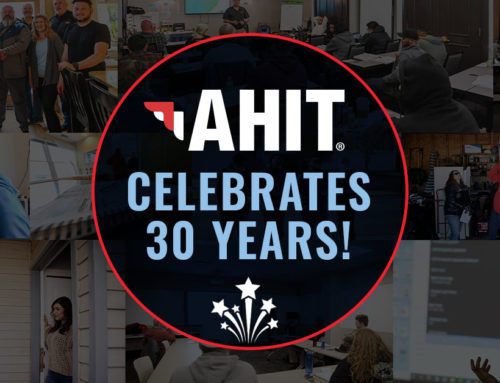
State licensing: Is it important (even necessary) for the industry?
Whether a home inspector has to be licensed or abide by specific regulations to practice varies by state. Some states have no professional requirements for home inspectors.
What does the inconsistency in licensing and regulations among states mean for the home inspection industry and consumers? AHIT’s Home Inspector Blog asked a few experts to weigh in.
Licensing environment
Frank Lesh, executive director, American Society of Home Inspectors, said states’ regulation of the industry has been at somewhat of standstill.
“Currently, approximately 35 states require some form of home inspector regulation,” Lesh said. “Regulation includes everything from full blown licensing, as well as just registering as a business doing home inspections,” said Lesh, who served as ASHI’s president in 2007. “It’s difficult to predict if more states will move in that direction. There was a large trend in that direction years ago, but it has slowed down.”
Chris Chirafisi, technical training manager, American Home Inspectors Training Institute, and a licensed home inspector in Wisconsin, Kentucky and Florida, said very few states are introducing licensing and agreed that the push has waned.
“Vermont recently introduced licensing and Virginia has licensing going into effect July 2017,” Chirafisi said. “But there has been very slow movement for states to actually adopt licensing/regulations in recent years.”
Lesh, founder of the Home Sweet Home Inspection Company, Indian Head Park, Ill., said licensing sets a minimum standard of compliance with the law, but the key word there is “minimum.”
“Unfortunately, consumers have the expectation that because a license is necessary, then all inspectors are the same,” Lesh said. “Nothing could be further from the truth. The analogy I like to use is most barbers and hair dressers are licensed, but consumers can still get a bad haircut.”
Not all home inspectors agree, however. Brendan Ryan, president of the Pennsylvania Home Inspectors Coalition, said the state law in Pennsylvania is more like a trade act, and it’s pretty much self-enforcing. But that could change. There’s a bill in the legislature to incorporate the trade act into state law — a licensing law, which would include the formation of an oversight board and entry licensing for home inspectors.
Ryan, who has been a home inspector for 26 years and is president of CSA Home Inspection, is pro licensing.
“The reason that I am for it is that it does create a specific bar that must be achieved for proficiency, whereas with the current trade law or no licensing, there is no true basic standard for proficiency and consumer protection,” Ryan said. “In states where there is no licensing, there will be lack of people getting the education to stay abreast of any new system components in homes or in a unique situation that may occur. Continuing education is a major part of our profession. Without licensing, there are no educational requirements, no testing requirements. There are no requirements for carrying insurance.”
“Unfortunately, consumers have the expectation that because a license is necessary, then all inspectors are the same. Nothing could be further from the truth. The analogy I like to use is most barbers and hair dressers are licensed, but consumers can still get a bad haircut.” — Frank Lesh
Licensing’s limits
According to Kevin O’Malley, author of the industry text “Marketing and Operating a Successful Home Inspection Business,” and co-founder of HomeownersNetwork.com, licensing, itself, means little but the demonstration of minimal proficiency.
Whether a state requires licensing or not, “cream rises,” he said. “Some people have ethics and integrity and some don’t. I don’t believe licensing requires any of those things,” said O’Malley, who also is chief managing officer of Warrantee Management, LLC.
Licensing is a good start, according to Chirafisi, but a big part of licensing depends on what the state actually requires to obtain the license.
“Some states only require you to pass an exam and then they grant you a license, which is really ridiculous,” Chirafisi said. “Other states require you to complete a certain amount of educational hours that pertain to home inspection, pass the National Home Inspectors Exam and complete a certain amount of ride-along inspections with a licensed inspector. That is a much better way to make sure that home inspectors are being professionally trained and getting that important hands on experience.”
Home inspection is not a get-rich-quick scheme; it takes hard work and time, he said.
“I think these states that don’t have at least minimum requirements are doing a disservice to the residents and consumers who are purchasing a home,” Chirafisi said. “Just because someone has been in the trades or in one specific trade does not qualify them to perform home inspections. For example you may have an HVAC tech that is an expert in that particular field (heating and cooling), but what do they know about the structure of the home or the electrical system? A professionally trained qualified inspector will know about all the different systems of the home inside and out.”
Licensing often starts with a reasonable goal of “making sure inspectors are qualified,” but states typically don’t have the ability to adjust the profession to changing conditions, Lesh said.
“For example, when ASHI decided to include inspecting appliances, we did it. Trying to get the government to change something is much more difficult,” Lesh said.
Beyond licensing
In states that require licensing, the tendency is for consumers to lump home inspectors into the same group, rather than according to individual credentials, Lesh said.
Licensing doesn’t separate the most from the least knowledgeable inspectors. Rather, organizations like ASHI do that, he said.
“ASHI has built its reputation on 40 years of trust and its third-party certification, which separates ASHI from any other home inspection organization,” Lesh said.
The best thing inspectors can do to further their careers is get involved with a professional organization like ASHI that is professional by an outside credentialing agency, Lesh said.
In unregulated (and even regulated) states, the best thing that home inspectors can do is to get professionally trained, Chirafisi said.
“A well-rounded home inspector not only has technical knowledge but also has excellent communication and people skills,” Chirafisi said. “My advice is to attend one of our live training courses where we take you out on actual home inspections, so you get familiar with the inspection process and get to see different inspection scenarios. And for the individuals that are looking to start their own business, we include, as part of the training, business and marketing development.”






